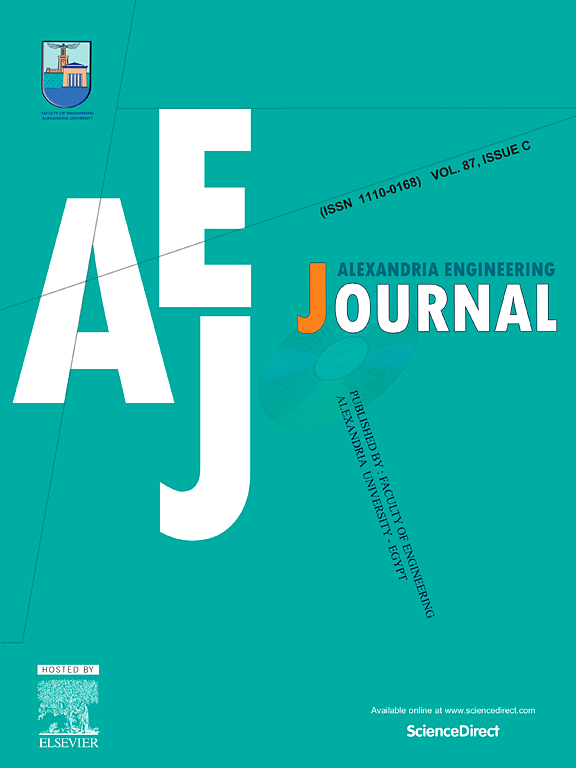Two-phase Agrawal hybrid nanofluid flow for thermal and solutal transport fluxes induced by a permeable stretching/shrinking disk
IF 6.2
2区 工程技术
Q1 ENGINEERING, MULTIDISCIPLINARY
引用次数: 0
Abstract
Nanofluid is one of the modern heat transfer fluids that offer the potential to substantially enhance the heat transfer efficiency of conventional fluids. Extensive research has been undertaken to explore its fundamental thermophysical properties specifically viscosity and as well as thermal conductivity. This research emphasizes the significance of hybrid nanofluids and investigates the effect of Brownian motion and thermophoretic phenomena on the characteristics of the Agrawal flow that tends to a stagnation point adjacent to a moving porous disk. The model also accounts for the effects of Smoluchowski temperature and Maxwell velocity slip conditions. Through the utilization of similarity ansatz, the governing partial differential equations are simplified into a class of ordinary differential (similarity) equations. Subsequently, these simplified equations achieved numerical solutions by employing the bvp4c solver, which is specifically designed for fourth-ordered boundary value problems. The study delves into the remarkable impacts of the pertinent embedded parameters on key parameters such as mass transfer rate, heat transfer rate, and shear stress. These effects are brilliantly depicted through a combination of graphs and tables. Graphical analyses disclose the presence of dual solutions within a particular range of the stretching/shrinking parameter. Also, enhancing the solid volume fraction of nanoparticles leads to a notable rise in the shear stress and heat transfer for both solution branches, whereas the mass transfer rate experiences a reduction.
可渗透拉伸/收缩盘诱导热和溶质传输通量的两相阿格拉瓦尔混合纳米流体流
纳米流体是现代传热流体之一,具有大幅提高传统流体传热效率的潜力。人们对其基本热物理性质,特别是粘度和导热性能进行了广泛的研究。本研究强调了混合纳米流体的重要性,并研究了布朗运动和热泳现象对阿格拉瓦尔流特性的影响。该模型还考虑了斯莫卢霍夫斯基温度和麦克斯韦速度滑移条件的影响。通过使用相似性等式,支配偏微分方程被简化为一类常微分(相似性)方程。随后,这些简化方程通过使用专为四阶边界值问题设计的 bvp4c 求解器实现了数值求解。研究深入探讨了相关嵌入参数对传质速率、传热速率和剪切应力等关键参数的显著影响。这些影响通过图表和表格相结合的方式得到了很好的描述。图形分析表明,在特定的拉伸/收缩参数范围内存在双重解决方案。此外,提高纳米粒子的固体体积分数会导致两种溶液分支的剪切应力和传热显著增加,而传质速率则会降低。
本文章由计算机程序翻译,如有差异,请以英文原文为准。
求助全文
约1分钟内获得全文
求助全文
来源期刊

alexandria engineering journal
Engineering-General Engineering
CiteScore
11.20
自引率
4.40%
发文量
1015
审稿时长
43 days
期刊介绍:
Alexandria Engineering Journal is an international journal devoted to publishing high quality papers in the field of engineering and applied science. Alexandria Engineering Journal is cited in the Engineering Information Services (EIS) and the Chemical Abstracts (CA). The papers published in Alexandria Engineering Journal are grouped into five sections, according to the following classification:
• Mechanical, Production, Marine and Textile Engineering
• Electrical Engineering, Computer Science and Nuclear Engineering
• Civil and Architecture Engineering
• Chemical Engineering and Applied Sciences
• Environmental Engineering
 求助内容:
求助内容: 应助结果提醒方式:
应助结果提醒方式:


